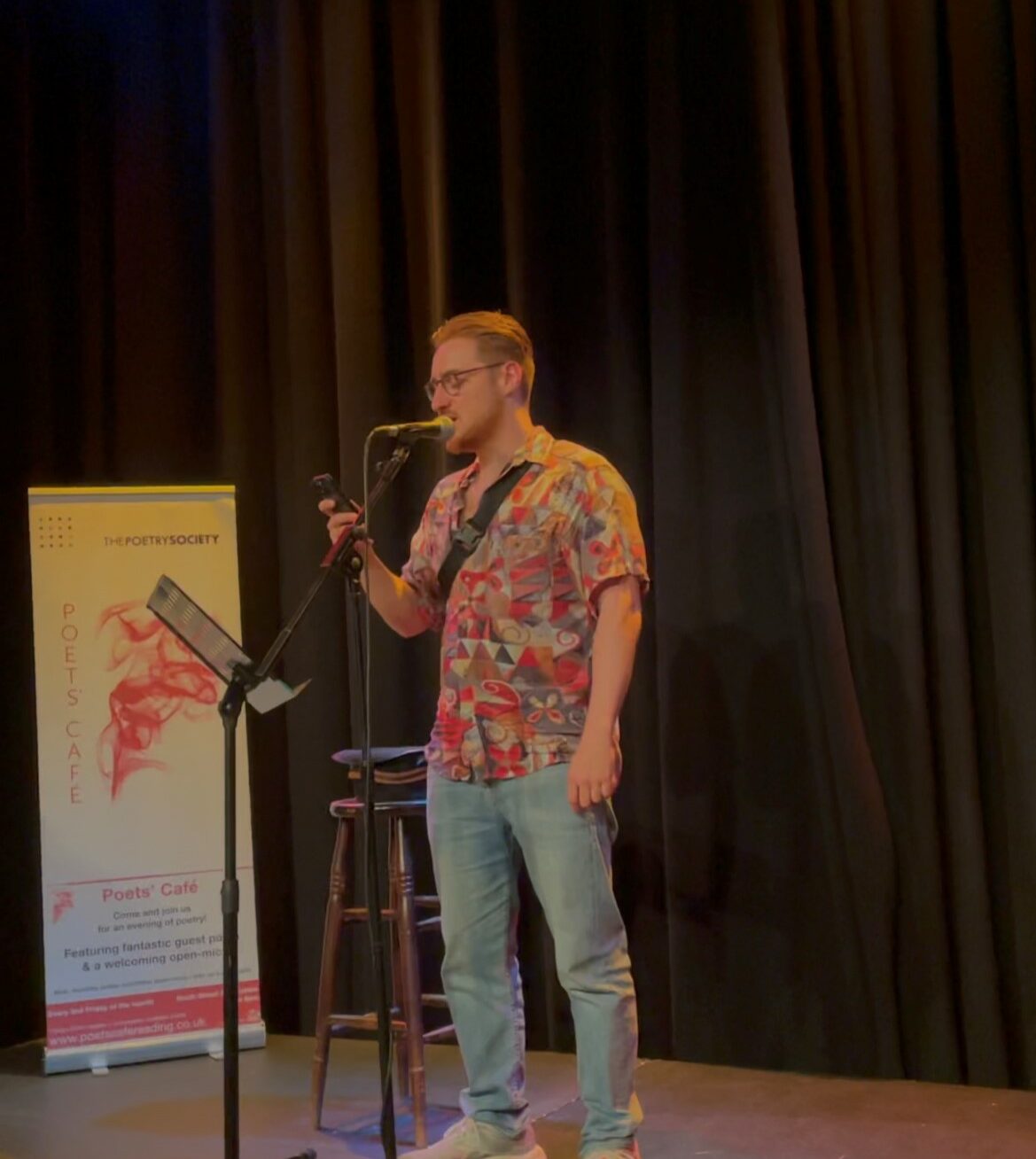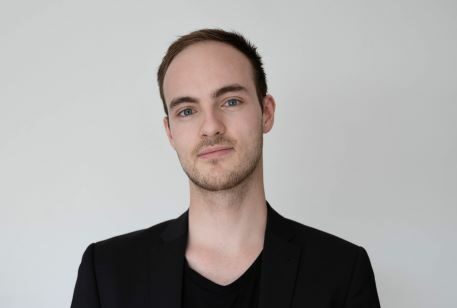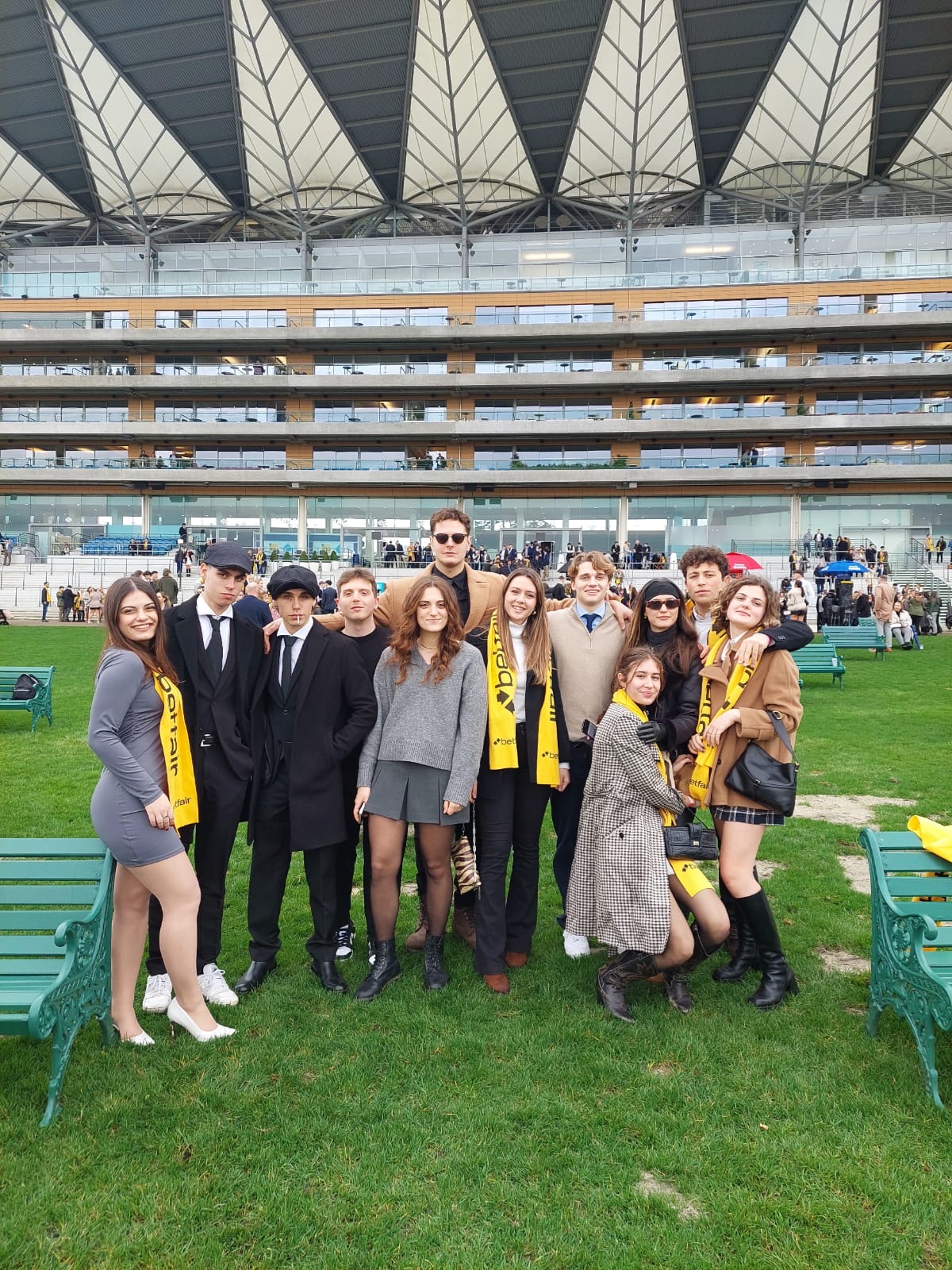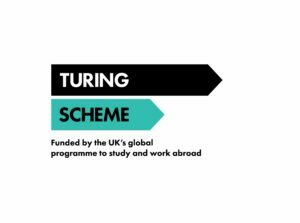Being Taught By Poets
I came to England during a very interesting time. A time when the monarchy was in upheaval. A social event that isn’t very tangible for us Germans, but nevertheless the news of the Queen’s death also made waves in our country. As a student travelling alone with half my life in my luggage, my biggest worry was that my arrival wouldn’t go smoothly. Fortunately, this wasn’t a problem at Heathrow Airport. On the ground, however, I found most in mourning. A sadness that one is rarely used to, comparable to a sudden natural disaster or the general mood of deep mourning after a terrorist attack. Everywhere one was reminded of this. London itself gave the impression of standing still. People had come just for this event and were trying to find the right words. You often heard “She had a good run.” or “She was like a grandmother to me.” You notice it in the pubs too. One scene that will certainly remain in my memory is the following: The day before the funeral, I was sitting with my British flatmates from the dormitory in the backyard of a pub not far from the university. There were British flags hanging everywhere and a picture of the Queen was placed on a table in the middle. We also interacted with guests on site. An elderly man, before he left, said with deep sadness: “Keep an eye on her for me, don’t let her be alone.” It was impressive for me to see how strong the connection is and that the Queen held a maternal or grandmotherly role for many. After the day of mourning and the funeral, normality returned to everyday life.
The university offers countless opportunities to network with other students from the UK, but also internationally. The so-called Freshers Week serves to get to know each other better, so that when it comes to concentrated learning, you aren’t alone on campus. I have made friends from all over the world and am happy about these acquaintances, which I hope will last for a long time. I had little luck with the courses at first, as I had to learn that Erasmus students are treated secondarily when the number of participants is limited. However, I then took Professor Erchinger’s advice, which is the person responsible at my home university, and got involved in courses that hadn’t necessarily corresponded to my first choice. With new enthusiasm and a certain openness, I was able to have very interesting experiences and broaden my horizons. As the title of the course suggests, it is about the critical examination of philosophical and literary theories. For a large part of the time, we also looked at political ideas. We got to know language-analytical theories by Derrida and De Saussure. We continued with essays by Lacan and Althusser on psychoanalysis and state theory, and then moved on to Zizek and film theory. For my essays, I then chose Hayden White and the film Memento to show how historical research can be viewed critically, since history is recorded by people and thus always reflects a point of view that isn’t entirely objective. We also went through Frantz Fanon and Stuart Hall. The courses were very relaxed and we were a smaller group than I’m used to in German lecture halls. The “Du” was used from the first lecture onwards and made for more relaxed interaction. Above all, I liked the fact that the regular debriefings of the lecture focused on what sparked our interest in the texts. It was less of a predetermined model solution and more of an open-ended rolling of ideas, something you might be used to in higher philosophy semesters. Another course that suited my interests was “Modern and Contemporary British poetry”. I finally had the opportunity to be taught by a real poet. The material wasn’t small and we got to know poets like T.S. Eliot, Philip Larkin, Basil Bunting, Ted Hughes, Jo Shapcott and Fleur Adcock. In the debriefing sessions, we were again able to give free rein to our interpretations, guided by Professor Steven Matthes, so that we could better understand the poets’ contemporary backgrounds and character traits. Some metaphors cannot be deciphered without the relevant knowledge.
Professor Peter Robinson, whose Creative Writing course on poetry I unfortunately couldn’t attend, then gave me the opportunity to discuss some of my poems and short stories with him. He gave me many interesting suggestions, helped me finish my drafts and advised me to submit my stuff to magazines. At this stage, I haven’t received any confirmation, but I expect that some of my poems will be published in uni’s own magazine “Canvas” next autumn.
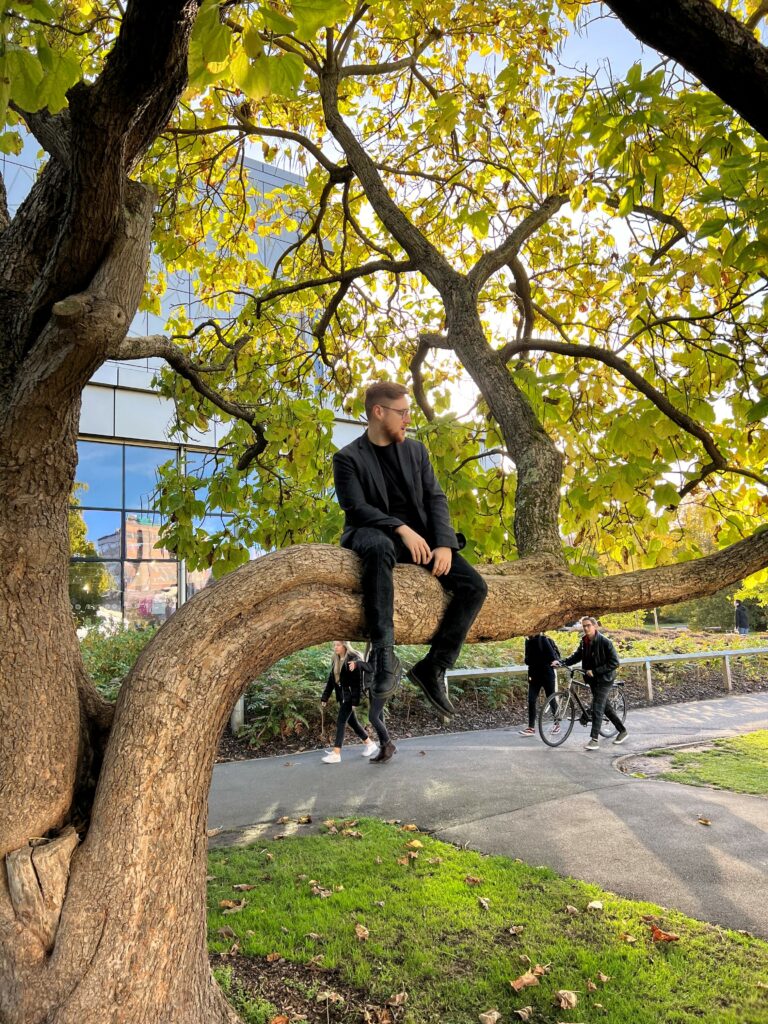
Three of my poems got published in online magazines recently. It’s a big step for me and I’m very happy that my time in the UK has already borne fruit. I was also able to take courses in the Department for Languages and Cultures. Here I got to know comparative literature, a subject I could well imagine for my Master’s degree. We got to know works by German, Italian, Spanish, French and English writers from different periods and compared them with each other. I particularly enjoyed the German part and was able to study Sigmund Freud’s literary analyses in depth. This resulted in some very well graded essays. In my free time, I enrolled in countless societies and dabbled a little everywhere. Since I am a big fan of sea shanties, I also joined the Sea Shanty and Folksong Society. We learnt British and international folk songs as well as many sea shanties together. In the Chess Society I had to learn that my chess skills still need some practice. The Tennis Society was much fun. The tennis court was only five minutes away and I was able to take up an old hobby again. In the Creative Writing Society and the English Literature Society I have also been able to exercise and gain good experience. The nearby gym offers many classes and I was able to try yoga for the first time, which helped me deal with stress, especially during the exam period. In addition to my courses, I also took a Russian course, as I had been planning to learn the language for a long time. I was able to complete this course with a good result. On the campus itself, there is a Roman museum and a natural science museum, which even has dinosaur bones on display. Another highlight was the visit to the Samuel Beckett Archive. It is the most comprehensive in the world and offers anyone who feels close to the Nobel Prize winner an exciting place to stay. I took a closer look at his diary, which he made in pre-war Germany in 1936 and, as a tourist, offers an insight into the beginnings of fascism. It’s a fascinating relic from the heart of the nation and a time that underwent a development whose consequences are inexplicable.
In addition to the university activities, I got to know Reading as a very green and lively town. There are countless walking paths along the Thames and many parks and lakes. The city centre gave us some great evenings and nights out with its nightlife options. On the university campus itself, however, there are also several pubs and a multi-purpose space that hosts events, the weekly fruit and vegetable market and turns into a club three times a week, attracting non-students from the surrounding area. The club nights are run by relatively well-known DJs and it’s a great place to meet lots of people.
Reading is located between London and Oxford, making it a good location for day trips. Even though tickets aren’t cheap, I have tried to go to London as often as possible. I have attended poetry events and recited my own poetry at open mics. Several times I have had friends over and we have experienced museums and the cultural landscape of London. I have also been able to take a trip to Eastbourne on the south coast and hiked the famous Seven Sisters and the Beachy Head viewpoint. Another trip that I will definitely remember was to Cambridge. A friend did his PhD in philosophy there, so we had access to all the major colleges, museums and churches. It was really impressive how much this city has to offer and gives to the students. Looking for an internship in London, I didn’t have much luck finding anything that would extend my stay in UK. Fortunately, however, I was able to secure a place at the European Poetry Festival. I will be interviewing poets who have performed. The interview will be conducted via Zoom and then made available on the website for those interested. I am looking forward to the challenge and the opportunity, which wouldn’t have happened without Erasmus.
Despite the rising cost of living, thanks to funding from Erasmus and my scholarship from the German-British Society, I had the opportunity to experience a culture as an active participant in university life. I had made a cost plan in advance, but had to scrap it as the costs were higher than I thought. Rent and travel costs were the most expensive for me. Luckily, I was able to fall back on savings and loans from family.
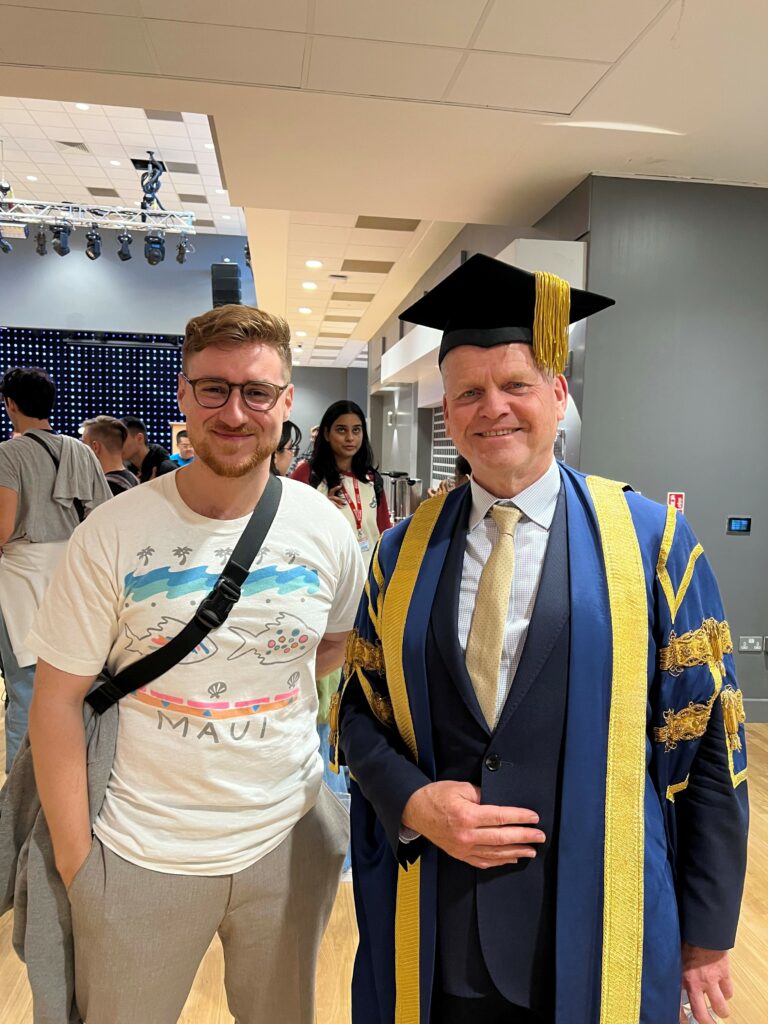
The Vice-Chancellor Robert Van de Noort said in his welcoming speech that we should give the English a chance, because they are hard to crack at first, but once you have won them over, you have made friends for life. These words have accompanied me in many situations and, looking back, I can say that I am happy to have made these connections. With the coronation of Charles III, I end my stay and have thus experienced the full cycle of the monarchical transition. I am grateful for this experience and would like to express my deepest gratitude to those who made it possible. I am convinced of the Erasmus programme and advise every student to go abroad for at least one semester to get a different perspective on university teaching but also on life.
Incoming Student